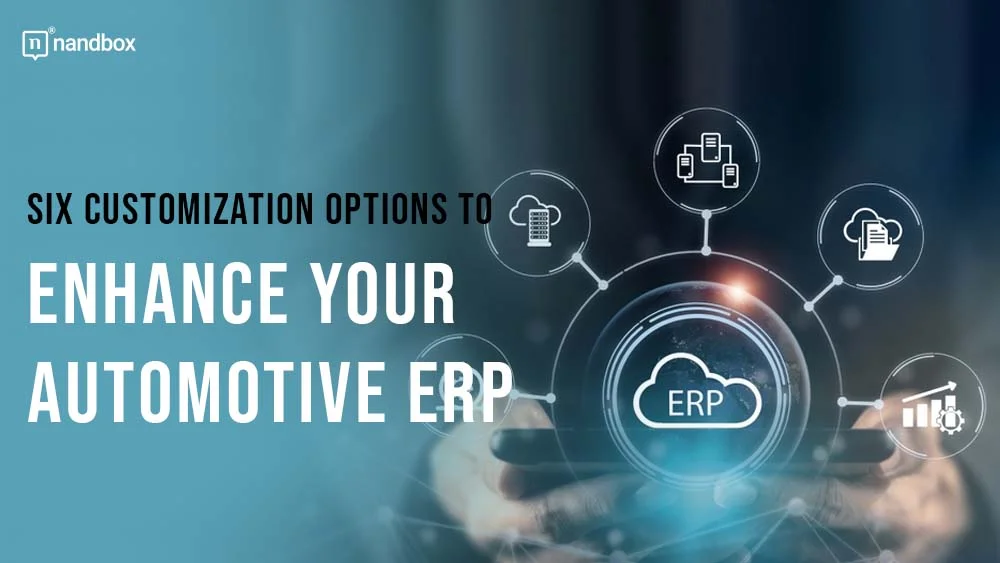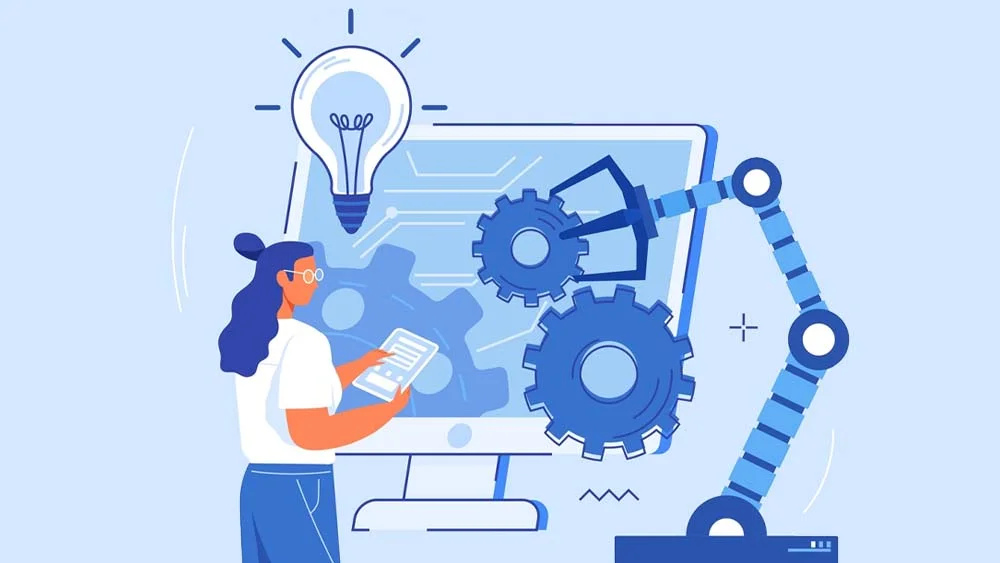The automobile ERP software market is forecasted to grow with a CAGR of 6.2% from 2024 to 2031 and is expected to surpass $4.597 billion by 2031. Automotive companies adopt ERP systems at an accelerated pace to streamline production, procurement, and other business processes, cutting operational costs and driving competitiveness.
Most ERP users report optimized inventory levels (90.9%) and improved efficiency and productivity (77.7%). However, only 7% of ERP adopters are satisfied with the out-of-the-box ERP functionality. 68% of survey respondents undertake at least moderate customizations to tailor ERPs to their unique needs and thus drive technology ROI.
In this article, ERP experts from Itransition cover the concept of automobile ERP customization and highlight the main customization options.
What Is Automobile ERP Customization?
Customization aims to modify an automobile ERP’s functionality, UX, or UI and tailor them to a company’s unique needs. ERP customization implies significant system modifications, such as writing custom code and building integrations, as opposed to configuration, which involves ERP settings adjustments via built-in software tools.
While customization is more effort-intensive, it can be a sound option in cases where the desired functionality is unavailable out of the box. By extending and modifying ERP’s functionality, companies manage to automate workflows end-to-end, improve data compliance, and drive ERP adoption within their organizations.
What Are the Common Automobile ERP Customization Options?
1. Feature Customizations
Feature customizations involve modifying the ERP code to improve or fine-tune its existing functionality.
They are essential as they allow for modifying the ERP code to add or alter specific functionalities. Imagine using an asset management module for a distinct industry like brewing. By integrating a brewery production tool, brewers can seamlessly handle batch tracking, inventory control, and production schedules, similar to how automotive manufacturers adjust their asset disposal processes.
For example, traditionally, automotive manufacturers use ERP software with asset management capabilities to control their fixed assets, such as machinery or facilities. When a company must dispose of outdated assets by discarding or selling them, its employees use in-built ERP templates to generate asset disposal forms. Although this functionality helps automate asset disposal to a certain degree, employees still have to calculate the cost of assets manually, which makes the disposal process too time-consuming and ineffective.
By customizing the existing asset management functionality, companies can automatically calculate the cost of fixed assets based on the price of the materials used when those assets were created and generate filled-out asset disposal forms, which additionally accelerates their work.
2. Functionality Extensions
Even industry-specific ERPs can fail to cover all the functional needs of the automotive business. This is where automotive erp software proves essential, providing scalable features tailored to sector-specific needs. Thus, creating an additional ERP module can help a company address this challenge. For instance, developers can equip an ERP system with warehouse management, capacity planning, or any other modules required by the company.
3. UX/UI Customizations
The discrepancy between the out-of-the-box ERP functionality and employees’ expectations regarding the system’s look and feel can negatively affect their user experience and engagement. To help a company avoid this issue, developers can modify homepage layouts with a custom-made menu, improve UI by restructuring the visual hierarchy of design elements, or optimize UX by building more convenient custom sign-up forms.
4. Custom Integrations
To maximize the value of the ERP solution and facilitate uninterrupted data flows, automotive companies should make the system an integral part of a connected digital ecosystem by enabling the following custom integrations:
- ERP/CRM
This integration allows automotive companies to automate quote management, optimize inventory, and forecast customer demand more accurately.
- ERP/HRM
Integration between ERP and HRM solutions allows automotive companies to optimize staff work schedules for production and logistics teams, as well as better track employee performance.
- ERP/Ecommerce
By connecting their ecommerce channels with ERP systems, automotive companies can sync order, customer, and inventory data, which helps streamline inventory optimization and prevent backorders.
- ERP/Business Intelligence
This integration allows automotive companies to analyze ERP operational data, even in real-time, to predict sales and revenue trends, enhance supply chain visibility, and optimize manufacturing performance.
5. Forms and Workflow Customization
This customization allows automotive companies to modify the out-of-the-box ERP workflows, such as sales order processing, financial approvals, and procurement, to align them with the company’s needs better, minimize business disruptions, and maximize user adoption of the ERP system.
6. Automation
Automotive companies can streamline day-to-day employee operations, such as document management, email generation, and reporting, by integrating robotic process automation (RPA) into their ERP software. For successful ERP implementation services, specialized consulting is often sought to ensure seamless integration and functionality.
What Are the Challenges of Automobile ERP Customization?
ERP customization comes with multiple challenges that require solid IT expertise to overcome. Among the most common ERP customization obstacles are:
Over-Customization
Excessive customizations can increase overall ERP adoption costs and make solution maintenance and upgrading too complex and resource-intensive. There are several ways companies can minimize the risk of ERP over-customization.
First, they have to give careful attention to the ERP selection process. Given the number of ERP options in the software market, identifying the best-fitting ERP system can be difficult for companies that lack in-house expertise, so seeking assistance from professional ERP consultants is preferable.
Secondly, if a company has non-trivial or even niche business processes, they can consider developing a custom ERP. Such solutions are built from scratch according to the company’s unique requirements and goals, which can help reduce the number of modifications and customizations later on.
Customization Maintenance and Support
Customizations require continuous updating and monitoring, which in turn can incur additional IT support and maintenance challenges and costs.
Allocating the Right Talent
Unlike configuration, which can be performed by system administrators, customization typically requires specialists with advanced development skills and knowledge of languages such as Java, Python, or .Net.
Final Thoughts
The automotive ERP software market is growing. Automotive companies are implementing ERPs at an increased pace, aiming to improve business performance and service quality and become more competitive.
However, the default out-of-the-box ERP functionality rarely satisfies all the needs of automotive businesses, prompting companies to initiate ERP customization. ERP customizations help companies modify various aspects of their software, from functional to UX and UI, and tailor ERPs to unique business requirements and workflows.
Since customization involves coding, it can be a challenge for companies lacking qualified IT expertise in-house. To deliver a customized ERP solution, a company can resort to third-party ERP engineers and thus avoid hiring the required IT labor.




